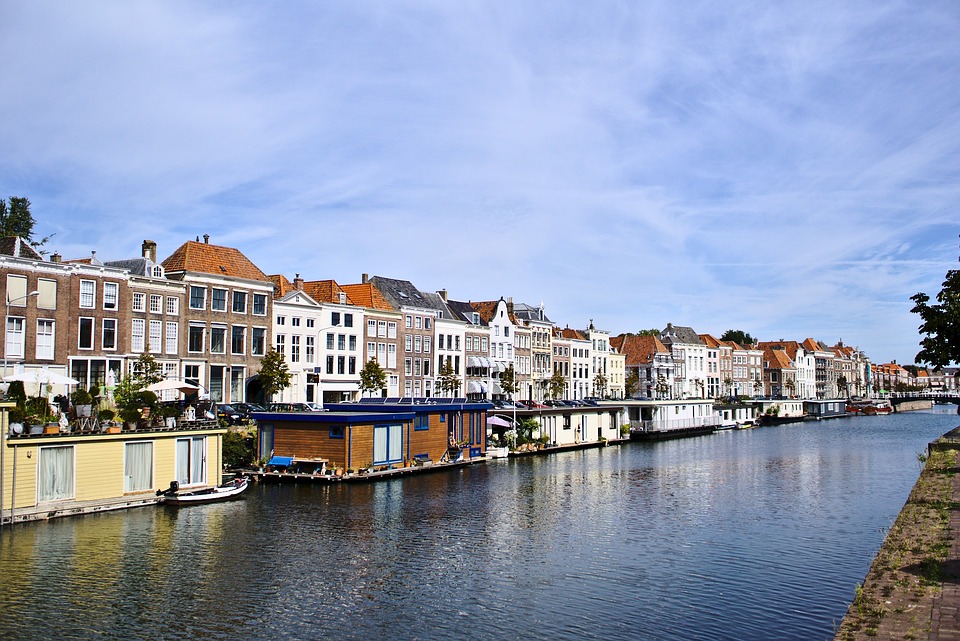Do you feel at home in the Netherlands? Are you settled and cannot ever imagine leaving? Is it something you are successfully working on, fully committed to a life here?
Alternatively, do you live with one foot out of the door, unable to develop strong, stable roots? Are you living a somewhat temporary existence until you figure out why you are here and what you are doing with your life?
My intention for this article is not to depress you, but instead to encourage a better understanding of the process of settling, and hopefully, afterwards, to hear some of your own experiences.
Whether you feel at home or not, my simple question is this: why?
The sometimes lonely road of an expat
If you feel settled then great, but it is an inescapable fact that being an expat can be incredibly lonely, even if you are surrounded by people that mean a lot to you. My current theory is that this boils down to two things: language and culture (ok, it often does).
The latter I’ll address in a bit, but first, let’s talk about language. Sometimes it feels a bit like a situation where you want to play football with your friends but you only have a tennis racket. Or you have a ball, but it is as flat as a pannenkoek. If a language is in any way an underdeveloped skill (or still a work-in-progress) then you can often find yourself saying what you can, not what you want.
In short, you are unable to express yourself.
This is obvious for everyone learning Dutch, as you may want to engage in deeper conversations or ones more meaningful than, essentially, speaking like a child. It is frustrating and difficult, but an unavoidable part of the process of language acquisition.
Likewise with English for non-native speakers, a group I have the utmost respect for (why would you not want to give up after reading: though through tough thought?).
It can be something as low-key as there being a sentiment best expressed in your primary language that loses its edge somewhat when translated into English. Or it can be more complicated: engaging with other non-native English speakers relies heavily on you being of similar levels of language competency and experience.
Even as a native British English speaker, I am aware that I have unconsciously developed an international filter for communication. This is absolutely not meant in a patronising way, but one born out of practicality.
Is it possible to feel at home in a place you struggle to fully express yourself in?

Engaging with the Dutch culture
Say you confidently swan dived into the great pool of Dutch culture only to find that the water was shallower than what you were hoping for (Hypothetically. Obviously). We all have different tastes, of course, and there are undoubtedly a lot of positives to be found within Dutch culture and this country’s straight-talking inhabitants.
However, for many it may become a question of finding that balance between respecting, engaging with, and understanding the native culture (which are all undoubtedly vital facets) but not at the expense of excessive compromise and just ‘putting up with’ things. We want to gain a stronger connection to our surroundings and the people that fill them in an authentic way, which helps us feel comfortable and most at home.
But stop and think for a second about the people you have in your life here in the Netherlands, and who you have the strongest connection to. Are you of similar cultures? Do you share the same language? Do you have to regularly stop and explain cultural references? What compromises are present?
We are perhaps most logically drawn to those with the same cultural background or nationality (though some of us are simply in no real position to start cherry-picking acquaintances), but I do wonder what effect that has on settling in a country, and, by extension, integration into its wider society.
Wait, there are countries outside of Europe?
Also, a quick mention to non-European expats, as many Europeans are very Eurocentric. To see people struggle for even one morsel of relevant information about your home country (or even the continent) must be, to say the very least, alienating. Hopefully one day the knowledge of life outside of Europe will be far richer than: what Donald Trump is doing + potential holiday destinations.
But it goes without saying that there is, on top of Dutch, an additional layer of having to engage with European culture and the associated mentality that we native Europeans may be unaware of, or that we vastly underestimate. This, obviously, needs to change.
Looking to the future
Arguably the most important is the most difficult. The question ‘do you see yourself still living here in five years’ time?’, for example, is vital: because if you can’t answer it with any real conviction, then what does that say about your connection to the Netherlands?
If you genuinely do not know, maybe pondering the nature of what it is to feel at home may unlock the answer. This, in my mind, is why it is so important to not just highlight this topic but to share our experiences as you never know just how much it may help another expat going through a period of uncertainty or loneliness.
Do you feel at home in the Netherlands? Share your thoughts and experiences below in the comments.
Feature Image: kirschkuh/Pixabay



Wow. It was a great sharing about the Netherlands. I am an Indian and moving to the Netherlands (Maastricht) by August for further studies. It will be my first international exposure. I am excited and nervous at the same time. I understand that when one knows the language and culture of a place, one understands its people and rest is all about humanity.